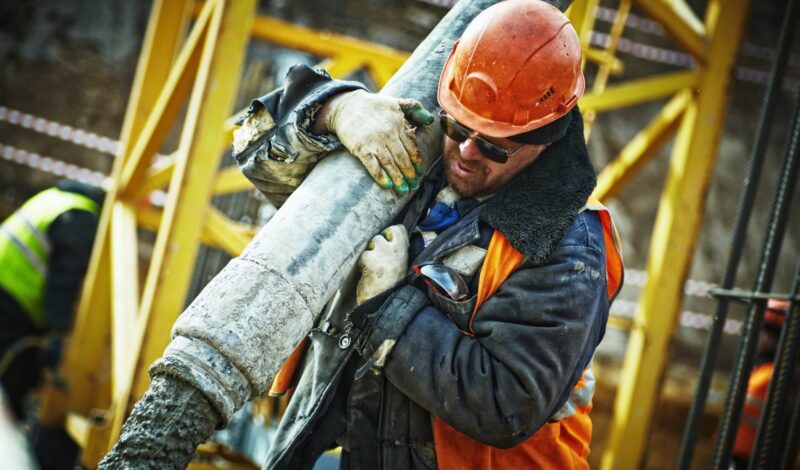The construction industry, with its complex network of contracts and collaborations, relies heavily on subcontractors who bring specialized skills essential for project completion. Ensuring the rights and protections of subcontractors is crucial for fair treatment and compensation in the construction industry. This issue not only affects the efficiency and success of construction projects but also impacts the livelihoods and safety of subcontractors. Understanding their rights, recognizing the common challenges they face, and knowing the legal protections available can empower subcontractors and create a more equitable working environment. Let’s delve into the intricacies of safeguarding subcontractor rights and why it matters.
Understanding Subcontractor Rights
Subcontractors, like general contractors, have specific rights that must be upheld for fair treatment and compensation. Recognizing these rights is the first step in protecting subcontractors from exploitation or neglect.
- Timely Payment: Subcontractors have the right to timely and full payment for their services. Contracts often detail payment schedules and conditions.
- Safe Working Environment: Subcontractors are entitled to a safe working environment. Safety regulations must be followed to ensure they can perform their duties without undue risk.
- Fair Contract Terms: Contracts should be transparent and equitable, avoiding unreasonable conditions.
Additionally, subcontractors have the right to access necessary information about the project. This includes understanding the overall timeline, budget constraints, and any potential risks associated with their work. Subcontractors must also be informed of any changes to the project that may affect their tasks or compensation. These rights empower subcontractors to advocate for themselves and seek legal recourse if necessary.
Common Challenges Faced by Subcontractors
Despite having defined rights, subcontractors often encounter challenges that hinder their professional and financial well-being. Transitioning to some of these issues, it is clear that solutions are needed.
- Delayed Payments: When general contractors or project owners delay payments, subcontractors face cash flow problems. This affects their ability to pay workers and suppliers.
- Ambiguity in Contracts: Vague or poorly defined contract terms lead to disputes over the scope of work, timelines, and payment conditions.
- Safety Issues: Neglecting safety protocols can expose subcontractors to hazardous conditions, leading to accidents and injuries.
Another challenge is dealing with unfair contract clauses. Sometimes, subcontractors find themselves bound by clauses that limit their ability to claim compensation for extra work or unforeseen circumstances. This can put subcontractors at a significant disadvantage. Furthermore, subcontractors may face issues with obtaining permits or meeting regulatory requirements, especially when these responsibilities fall between them and the general contractor. These challenges underscore the need for robust legal protections and vigilant advocacy for subcontractor rights.
Legal Protections for Subcontractors
Legal frameworks protect subcontractors and ensure they receive fair treatment.
- Mechanic’s Lien: This legal claim allows subcontractors to seek compensation directly from the property being improved if they are not paid for their services.
- Prompt Payment Laws: These laws mandate timely payments to subcontractors once they have fulfilled their contractual obligations.
- Worker’s Compensation Insurance: Ensures that subcontractors are covered in case of workplace injuries, providing medical benefits and wage replacement.
In addition, some regions have specific laws that protect subcontractors from unfair contract terms. These laws may void any clauses that are excessively burdensome or one-sided. Legal protections also include the right to access information and documentation related to the project. This can help subcontractors understand the project’s financial health and their standing within it. These legal protections secure subcontractors’ rights and ensure fair treatment.
Steps to Ensure Subcontractor Rights and Protections
To ensure subcontractor rights and protections, proactive steps are essential. Transitioning to these steps, we can see practical measures.
- Clear and Detailed Contracts: Contracts should explicitly outline the scope of work, payment terms, timelines, and safety requirements.
- Regular Communication: Open lines of communication foster a collaborative environment. This allows for the prompt resolution of any issues.
- Meticulous Documentation: Keeping detailed records of work performed, materials used, and communication with general contractors serves as evidence in case of disputes.
- Seek Legal Counsel: Experienced construction lawyers provide guidance on contract negotiation, dispute resolution, and legal recourse.
Moreover, subcontractors should regularly review and update their contracts and practices to reflect changes in laws and industry standards. Staying informed about new regulations and legal precedents can help subcontractors proactively adjust their agreements and practices. Additionally, subcontractors should join professional associations or networks. These organizations often provide resources, advocacy, and support that can be invaluable in protecting subcontractor rights. These steps help subcontractors safeguard their interests and ensure fair treatment.
Best Practices for General Contractors
General contractors play a pivotal role in ensuring subcontractor rights and protections. Transitioning to best practices, we find several essential actions.
- Prioritize Clear and Fair Contracts: Transparent agreements set the foundation for a positive working relationship. This helps prevent disputes.
- Timely Payments: Adhering to payment schedules ensures subcontractors are paid promptly for their services, fostering trust.
- Maintain a Safe Work Environment: Enforcing safety protocols and providing necessary protective equipment protects subcontractors and enhances project efficiency.
- Encourage Open Communication: Regular meetings and updates help address any issues early and maintain a collaborative atmosphere.
Additionally, general contractors should provide training and resources to subcontractors on compliance with safety regulations and project expectations. This can help subcontractors understand their roles better and reduce the likelihood of disputes. General contractors should also establish clear channels for feedback and grievances. This allows subcontractors to voice concerns and seek resolution in a structured manner. By following these best practices, general contractors create a fair and respectful working environment.
Importance of Legal Support for Subcontractors
Legal support is crucial in protecting subcontractor rights. Transitioning to the role of legal support, we see its significant impact.
- Contract Review and Negotiation: Lawyers assist with contract review, negotiation, and dispute resolution.
- Payment Disputes: Legal support is instrumental in filing mechanic’s liens or pursuing legal action to secure compensation.
- Compliance with Safety Regulations: Legal professionals provide guidance on ensuring compliance with safety regulations.




